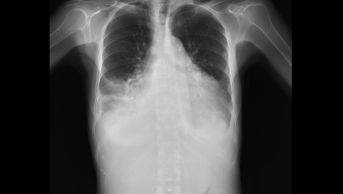
Shutterstock.com
Although the effects of beta-blockers on improving cardiac function and preventing or slowing heart failure have been well established, little is known about how the drugs affect cardiac gene expression.
To explore this, researchers studied gene expression in cardiac tissue samples taken from a mouse model of heart failure before and after four weeks of beta-blocker treatment compared with that of controls without drug treatment.
They identified 32 genes that showed a different pattern of expression between heart failure mice and healthy mice that was reversed when the mice were treated with beta-blockers. In particular, there were four genes associated with heart failure whose expression was suppressed by atenolol treatment.
Writing in Scientific Reports
[1]
(online, 30 June 2017), the researchers say the findings shed light on the molecular changes induced by beta-blockers, which could lead to new therapeutic targets in future; the next steps will be to see if these changes are mirrored in human heart disease.
References
[1] Tobin S, Hashemi S, Dadson K et al. Heart failure and MEF2 transcriptome dynamics in response to β-blockers. Sci Rep 2017;7:4476. doi: 10.1038/s41598-017-04762-x


